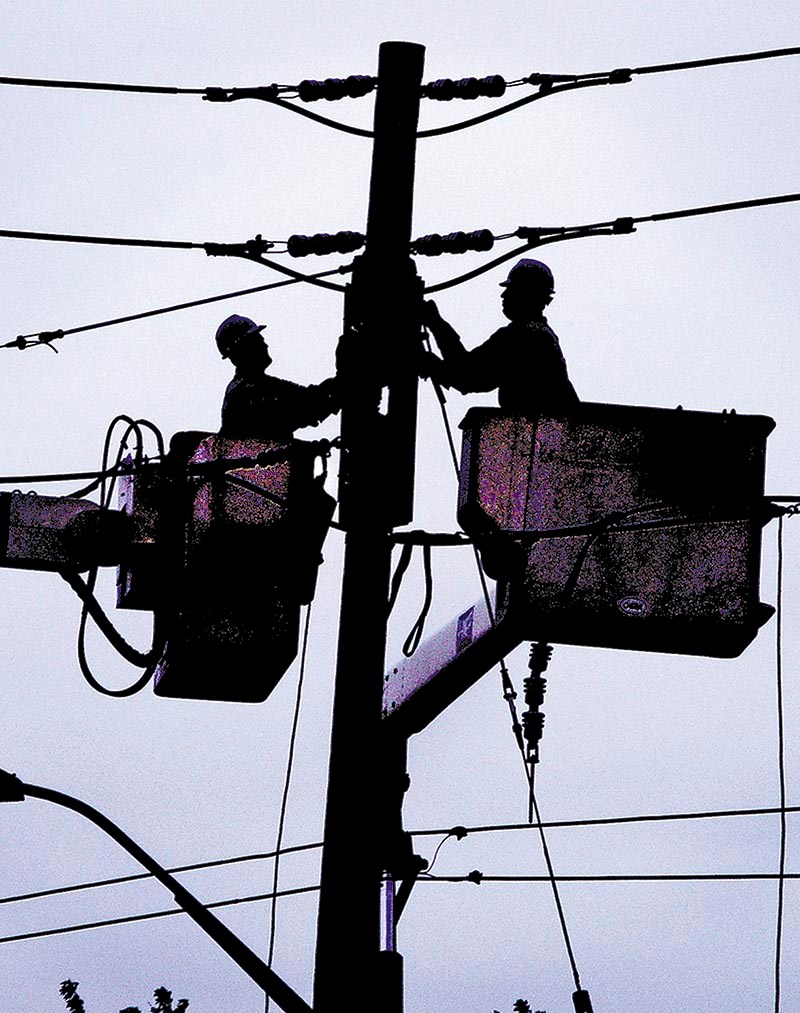With skyrocketing energy rates strangling the economy and the fat cats at Ontario Power Generation and Ontario Hydro bagging outrageous salaries, it’s no wonder “hydro” has become a dirty word.
The billing practices of Hydro One are a mess. Just ask the customers who signed up for pre-authorized payments and had their accounts mysteriously cleaned out.
Last week, the province admitted the sector’s “generous and expensive” pension plans are unsustainable and warned the public will ultimately pay.
And that hydro debt retirement charge? The one that appears on our monthly statements? The less said the better.
Given the surly mood it would be easy to tar Bluewater Power with the same brush. Easy, but wrong. The local utility is a homegrown – and unsung - success story that deserves a little respect.
The Bluewater Power Distribution Corporation was incorporated in 2000 with the merger of hydro commissions in Sarnia, Petrolia, Warwick, Alvinston and Oil Springs.
It controls 25% of the average residential electricity bill. It has no say in what Queen’s Park does, and it does not set the commodity price, which accounts for half your bill.
Bluewater Power was founded to distribute electricity, which it does with very high reliability at very low cost. And it’s added three new companies, all of which are turning a profit.
One venture, for example, sells specialized expertise to large Chemical Valley industries. Another, a renewable energy company, captures and converts landfill gas in Sarnia and Petrolia that would otherwise harm the environment.
Last year the spin-offs generated $10 million in revenue.
That business acumen is helping keep your property taxes low. Why? Because Bluewater Power’s shareholders are its member municipalities. Last year, the utility returned $2.5 million to shareholders, and $28 million since the utility’s inception.
Sarnia holds an 86% stake and Point Edward 3.4%, so it’s a big chunk of change.
While the average residential hydro bill has ballooned an ugly 33% over the past eight years – or 4% a year - the portion of the bill controlled by Bluewater Power has risen less than one-third of one percent annually. And if Ontario hadn’t mandated the use of smart meters, it’s quite likely the local rate would be less than zero.
In other words, Bluewater Power has expanded in a stagnant market, kept one-fourth of your hydro bill in check, and returned the profits from its successful ventures to municipal shareholders to fund local services and reduce property taxes.
All in all, that’s a pretty good deal.
- George Mathewson
